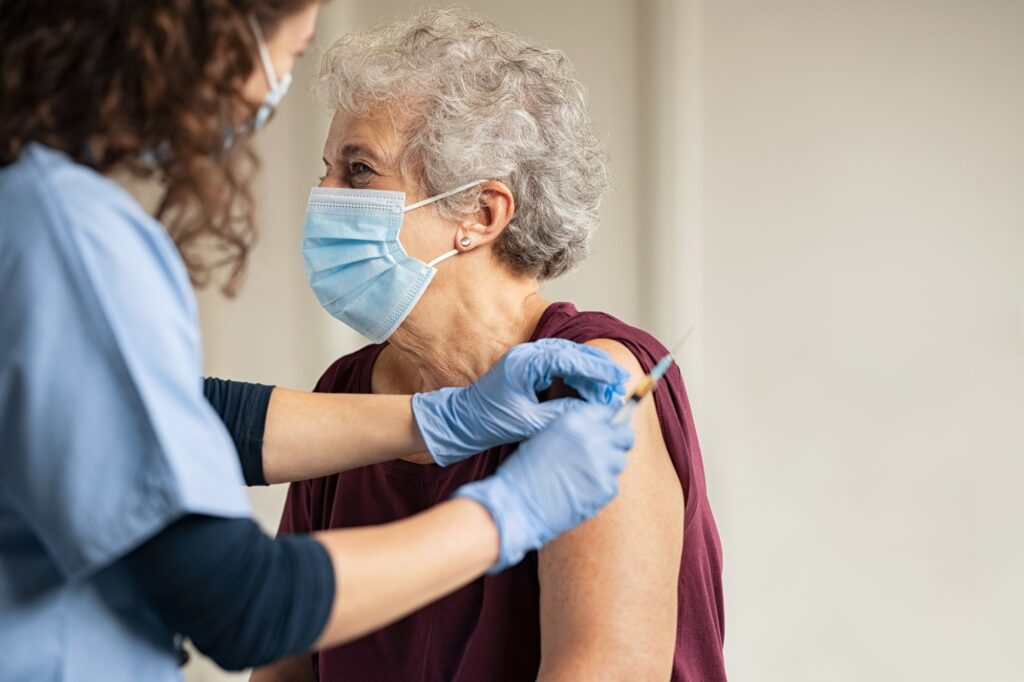
New real-world data confirm that the RSV vaccine offers strong protection for older adults across two winters, though it highlights weaker responses in those with compromised immunity and cardiovascular disease. A large-scale multicenter study, published in JAMA, revealed that a single dose of the respiratory syncytial virus (RSV) vaccine is 58% effective in preventing RSV-related hospitalization among older adults during two viral seasons.
The study, titled “RSV Vaccine Effectiveness Against Hospitalization Among US Adults Aged 60 Years or Older During 2 Seasons,” underscores the vaccine’s potential in reducing severe outcomes. However, it also points to diminished efficacy in certain high-risk groups.
Understanding RSV and Its Impact
Respiratory syncytial virus (RSV) is a seasonally prevalent virus in the United States, causing annual epidemics in the fall and winter. It induces severe respiratory illness and chronic cardiorespiratory conditions, particularly in older adults. Annually, an estimated 100,000 to 150,000 RSV-related hospitalizations and 4,000 to 8,000 deaths occur among adults aged 60 years or above in the United States.
To combat this, three RSV vaccines, including two protein-based and one mRNA, have been approved and recommended for older adults. Initially, in June 2023, a single dose of the RSV vaccine was recommended for adults aged 60 years and above. This recommendation was updated in June 2024 to include all adults aged 75 years or older and at-risk adults aged 60 to 74 years. By April 2025, the recommendation expanded to adults aged 50 to 59 at higher risk of severe RSV infection.
Study Design and Key Findings
The Investigating Respiratory Viruses in the Acutely Ill (IVY) Network conducted the study, assessing the effectiveness of RSV vaccines in a diverse population during two viral seasons. The study population included 6,958 adults aged 60 years or above, hospitalized with acute respiratory illness between October 1, 2023, and March 31, 2024, or October 1, 2024, and April 30, 2025.
Among the participants, 821 (11.8%) were cases (infected only with RSV), and 6,137 (88.2%) were controls (tested negative for RSV, SARS-CoV-2, and influenza). Approximately 7.7% of cases and 15.7% of controls received a single dose of the RSV vaccine at least 14 days before illness onset.
The study estimates that a single dose of the RSV vaccine is 58% effective in preventing RSV-related hospitalization among adults aged 60 years or above during two viral seasons compared to no vaccination.
Protection against severe outcomes among hospitalized patients was sustained for two years, with a 72% vaccine effectiveness against invasive mechanical ventilation or death. The effectiveness was 69% when administered in the same season before illness onset and 48% when vaccination occurred in the prior season, though this difference was not statistically significant (P = 0.06).
Challenges in High-Risk Populations
The study found that the vaccine’s effectiveness was significantly lower among immunocompromised adults, at 30%, compared to 67% in immunocompetent adults. Similarly, among those with cardiovascular disease, vaccine effectiveness was 56% compared to 80% in those without such conditions.
The vaccines Arexvy (GSK) and Abrysvo (Pfizer) showed similar effectiveness against both RSV A and RSV B subtypes. However, the reduced vaccine effectiveness in at-risk subpopulations indicates that older adults with moderate to severe immunocompromising conditions may have lower initial and less durable immune responses, emphasizing the need for a shorter revaccination interval.
Implications and Future Directions
The findings highlight the protective efficacy of a single-dose RSV vaccination against RSV-related hospitalization and severe in-hospital outcomes among older adults. However, the observed reduction in vaccine effectiveness among certain subpopulations suggests a need for tailored vaccination strategies.
Existing evidence on RSV vaccine-specific immune responses suggests that revaccination at intervals ranging from 12 to 36 months after the primary vaccination can boost antibody titers, though not to the same level as after the primary dose. These findings align with clinical trials showing that reimmunization 12 months after the primary vaccination does not provide additional protection against RSV-related lower respiratory tract disease compared to no revaccination.
The Advisory Committee on Immunization Practices has recently expanded RSV vaccination to adults aged 50 to 59 who are at higher risk of severe RSV infection. This reformation of vaccine policy underscores the need for continuous monitoring of vaccine efficacy to accurately characterize waning protection and inform revaccination intervals.
As the RSV vaccine continues to play a crucial role in public health, ongoing research and policy updates will be essential in optimizing its use and ensuring the safety and well-being of older adults.







